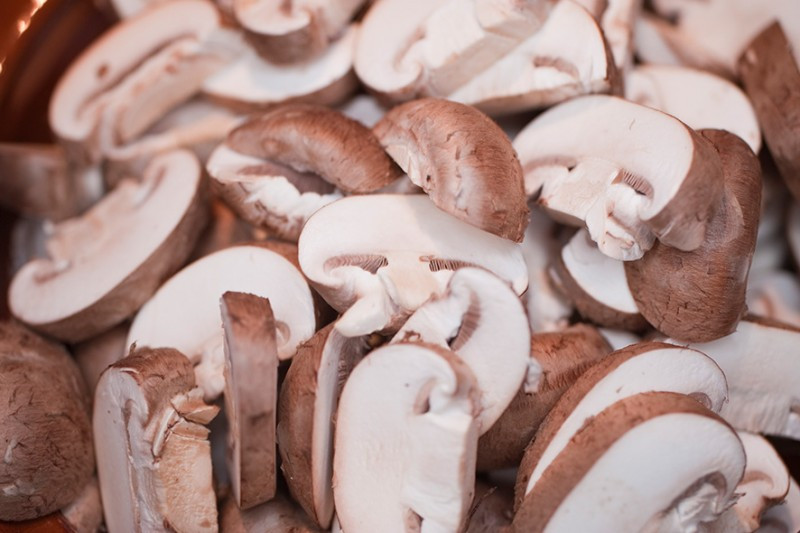Mushrooms are fascinating plants, not just because of the myriad health benefits they provide as a superfood of sorts, but for the starring roles they have played in children's literature (i.e., Alice in Wonderland ) and in the expanded minds of hipsters from the psychedelic ‘60s and ‘70s drawn to magic mushrooms and their hallucinogenic properties from a substance known as psilocybin. There's two sides to this story of psilocybin, per a study published in the Journal of Psychopharmacology, cited at webmd.com. In this study, researchers at Johns Hopkins University found that one dose of psilocybin given to (very closely supervised) volunteers produced a long-lasting boost in openness, a personality trait related to imagination, creativity, feelings, and abstract ideas. The study authors suggest that psilocybin also may prove useful in treating neuroticism and accompanying depression and anxiety, although additional research was declared necessary to figure out how all that would work. The caveat to all this is that while psilocybin is currently illegal, it does have healthful potential. However, there are numerous types of mushrooms that are perfectly legal and entrenched in the annals of health science, as well in the aisles of major grocery stores and supermarkets across the United States. Speaking of numbers, there are an estimated 140,000 mushroom-related fungi species in the world, of which about 10 percent have been catalogued by scientists. In turn, only a hundred or so species have been singled out for study in terms of potential health benefits and medicinal applications, per organicfacts.net. Generally speaking, edible mushrooms are naturally low in sodium, fat, cholesterol, and calories, per medicalnewstoday.com, earning it the nickname functional food.
11 Types of Mushrooms and Their Health Benefits
Here are eleven excellent edible (and perfectly legal) types of mushrooms considered top tier in terms of providing healthful benefits:- Chanterelle. Resembling a single mini-trumpet, this fungus plant has been linked to antimicrobial and antibacterial functions. It also is loaded with vitamins C and D, and potassium, which plays a role in regulating blood pressure levels.
- Cordyceps. Per organixx.com, these incredibly multitalented mushrooms can play a role in managing blood sugar levels, supporting heart and kidney health, strengthening the immune system, maintaining libido, and combating fatigue. Per the latter – recall the headlines when cordyceps mushrooms – the caterpillar fungus – made in 1993 when Chinese runners smashed two world records at the Asian Games.
- Crimini. These mushrooms are loaded with vitamins B2 and B3, which are instrumental in turning carbs into the fuel (glucose) burned by the body to produce energy and therefore put the spurs to our metabolism, per besthealthmag.ca. A hundred grams of crimini contain 44 percent of the daily recommended amount of B2 and 30 percent of B3.
- Enoki. Slender and described as mild-flavored, per webmd.com, these mushrooms are apparently effective in strengthening the immune system.
- Maitake. Pegged by health experts as a mushroom that is especially adept at triggering the body to send out killer immune system cells, per fitday.com.
- Oyster. Considered an excellent source of iron, and they're low in calories. A win-win for our body's health considerations. Also high in antioxidants.
- Porcini. This meaty mushroom is a potent anti-inflammatory that contains ergosterol, which can produce a process known as cytotoxicity that works to attack destructive cells, per fitday.com.
- Reishi. A few ounces a day of this large brown and white plant (which looks like it is made of wood) packs antioxidant, antibacterial, antiviral and antifungal properties, per fitday.com. Wait, there's more – its gandodermic acid has been shown to reduce cholesterol as well as high blood pressure.
- Shiitake. Per medicalnewstoday.com, one cup of stir-fried shiitake mushrooms contains about three grams of fiber, which can work wonders improving blood glucose levels for both type 1 and type 2 diabetes patients, while also aiding the digestive system and lowering the risk of heart disease.
- Shimeji. This long-stemmed, diminutive species has been shown to help ward off diabetes, asthma, and some allergies by bolstering the immune system and its healing capacity.
- White. A study that used mice and which was published by the American Society for Nutrition, per besthealthmag.ca, reported that white button mushrooms apparently have the capacity to boost our immune system by improving the production of antiviral and other proteins released by cells charged with protecting and repairing the body's tissues. It can also help maintain healthy blood sugar levels.

